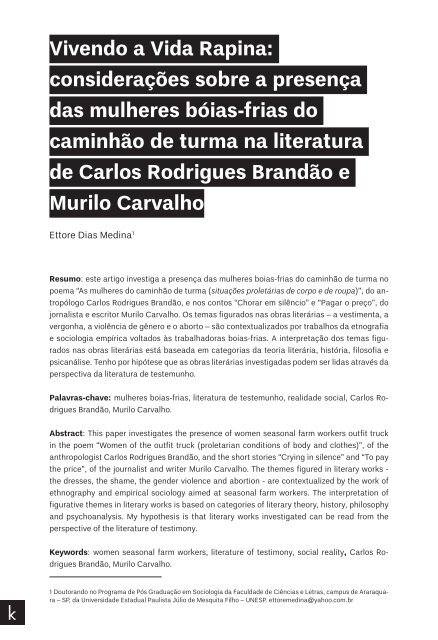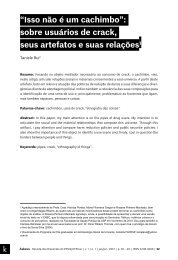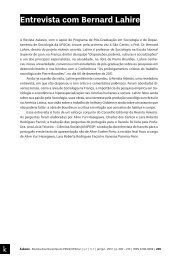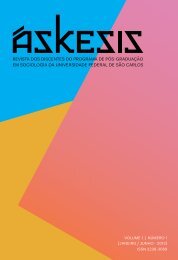Ãskesis_2_2013 - WordPress.com
Ãskesis_2_2013 - WordPress.com
Ãskesis_2_2013 - WordPress.com
- No tags were found...
You also want an ePaper? Increase the reach of your titles
YUMPU automatically turns print PDFs into web optimized ePapers that Google loves.
Vivendo a Vida Rapina:<br />
considerações sobre a presença<br />
das mulheres bóias-frias do<br />
caminhão de turma na literatura<br />
de Carlos Rodrigues Brandão e<br />
Murilo Carvalho<br />
Ettore Dias Medina 1<br />
Resumo: este artigo investiga a presença das mulheres boias-frias do caminhão de turma no<br />
poema “As mulheres do caminhão de turma (situações proletárias de corpo e de roupa)”, do antropólogo<br />
Carlos Rodrigues Brandão, e nos contos “Chorar em silêncio” e “Pagar o preço”, do<br />
jornalista e escritor Murilo Carvalho. Os temas figurados nas obras literárias – a vestimenta, a<br />
vergonha, a violência de gênero e o aborto – são contextualizados por trabalhos da etnografia<br />
e sociologia empírica voltados às trabalhadoras boias-frias. A interpretação dos temas figurados<br />
nas obras literárias está baseada em categorias da teoria literária, história, filosofia e<br />
psicanálise. Tenho por hipótese que as obras literárias investigadas podem ser lidas através da<br />
perspectiva da literatura de testemunho.<br />
Palavras-chave: mulheres boias-frias, literatura de testemunho, realidade social, Carlos Rodrigues<br />
Brandão, Murilo Carvalho.<br />
Abstract: This paper investigates the presence of women seasonal farm workers outfit truck<br />
in the poem “Women of the outfit truck (proletarian conditions of body and clothes)”, of the<br />
anthropologist Carlos Rodrigues Brandão, and the short stories “Crying in silence” and “To pay<br />
the price”, of the journalist and writer Murilo Carvalho. The themes figured in literary works -<br />
the dresses, the shame, the gender violence and abortion - are contextualized by the work of<br />
ethnography and empirical sociology aimed at seasonal farm workers. The interpretation of<br />
figurative themes in literary works is based on categories of literary theory, history, philosophy<br />
and psychoanalysis. My hypothesis is that literary works investigated can be read from the<br />
perspective of the literature of testimony.<br />
Keywords: women seasonal farm workers, literature of testimony, social reality, Carlos Rodrigues<br />
Brandão, Murilo Carvalho.<br />
1 Doutorando no Programa de Pós Graduação em Sociologia da Faculdade de Ciências e Letras, campus de Araraquara<br />
– SP, da Universidade Estadual Paulista Júlio de Mesquita Filho – UNESP. ettoremedina@yahoo.<strong>com</strong>.br





